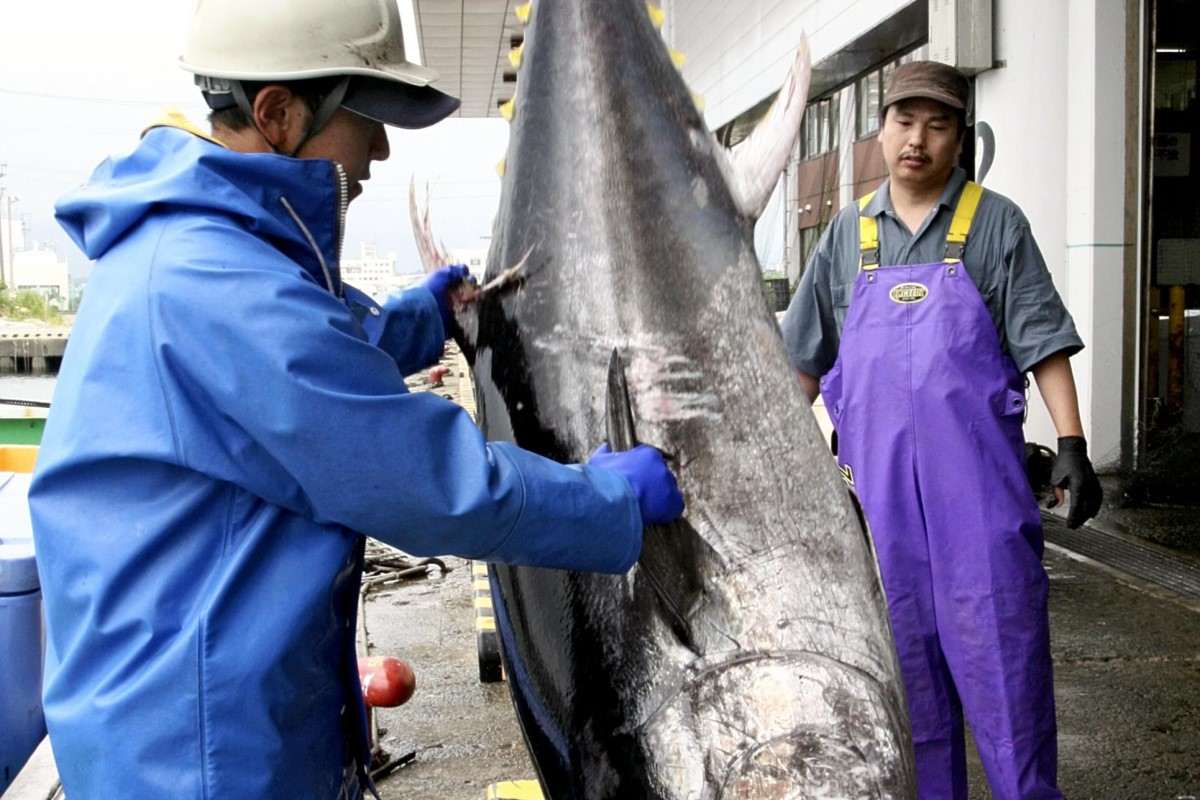Japan Proposes Lifting Bluefin Tuna Quotas; Request Based on Recovering Stocks of Prized Sashimi Ingredient

A bluefin tuna is unloaded at a port in Sado, Niigata Prefecture, in June.
15:50 JST, July 11, 2024
The Japanese government has proposed the nation’s annual catch quota of large Pacific bluefin tuna be more than doubled, as stocks of breeding-age fish have recovered in recent years.
The proposal was made at an international conference on managing stocks of the fish that began Wednesday in Kushiro, Hokkaido.
Some countries remain reluctant to expand the catch quota, so discussions toward an agreement could run into difficulties.
The Western and Central Pacific Fisheries Commission (WCPFC), whose members include Japan and the United States, and the Inter-American Tropical Tuna Commission, whose members include the United States and Mexico, will hold a joint meeting that runs until Saturday. The WCPFC will consider recommendations for its annual meeting in December, based on discussions held at the joint meeting.
Bluefin tuna, which is used for sushi and sashimi, is an essential part of Japan cuisine. Overfishing by Japan, the world’s largest consumer of this species of tuna, was a major reason why stocks plunged from a peak of about 160,000 tons in 1961 to about 10,000 tons in 2010. International catch limits have been successful, with stocks estimated to have recovered to about 144,000 tons in 2022.
The Fisheries Agency has now proposed that the quota for large bluefin tuna — those weighing at least 30 kilograms — be increased by 130%, and the quota for small bluefin tuna — less than 30 kilograms — be lifted by 30%. The latter figure was derived out of consideration for the potential impact on breeding.
Japan is currently permitted to catch 5,614 tons of large tuna and 4,007 tons of small tuna in WCPFC waters each year.
This is the first time in three years that Japan has proposed a significant increase to the catch quotas. Fishing industry operators have claimed that some tuna that gets caught has to be released back into the sea because the catch would exceed the annual quota. Despite this, reaching a deal will be challenging.
“These negotiations won’t easily reach an agreement,” a Fisheries Agency official said.
Top Articles in Society
-

Producer Behind Pop Group XG Arrested for Cocaine Possession
-

Man Infected with Measles Reportedly Dined at Restaurant in Tokyo Station
-

Man Infected with Measles May Have Come in Contact with Many People in Tokyo, Went to Store, Restaurant Around When Symptoms Emerged
-

Woman with Measles Visited Hospital in Tokyo Multiple Times Before Being Diagnosed with Disease
-

Australian Woman Dies After Mishap on Ski Lift in Nagano Prefecture
JN ACCESS RANKING
-

Producer Behind Pop Group XG Arrested for Cocaine Possession
-

Japan PM Takaichi’s Cabinet Resigns en Masse
-

Man Infected with Measles Reportedly Dined at Restaurant in Tokyo Station
-

Israeli Ambassador to Japan Speaks about Japan’s Role in the Reconstruction of Gaza
-

Videos Plagiarized, Reposted with False Subtitles Claiming ‘Ryukyu Belongs to China’; Anti-China False Information Also Posted in Japan
























